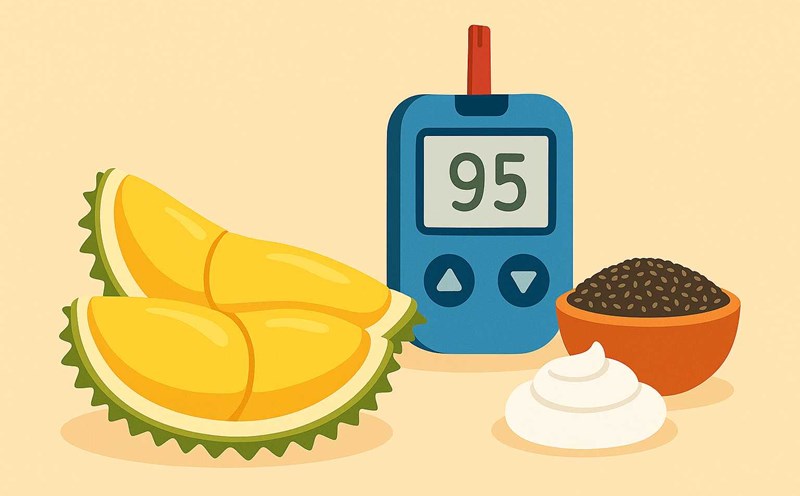Despite compliance with strict diet, many people with diabetes are still surprised to see that the morning glucia index is higher than usual.Some people even claim that they only snack or skip dinner, but when measuring blood sugar at waking up, the results still exceed the allowed threshold.The cause may not lies at a meal but involves two physiological mechanisms with little people who know the phenomenon of "dawn" and the Somogryi effect.
According to the American Diabetes Association (ADA), the phenomenon of hyperglycemia in the early morning can occur in both people with and without diabetes.However, in people with the disease, this condition may last longer and harder to control."This is the consequence of hormonal changes that take place naturally at night, not directly related to the previous dinner," Dr. Anne Peters, an endocrine expert at the University of Southern California (USA), explained.
In healthy body, at about 3-8 am, anti-insulin hormones such as cortisol, glucagon, growth hormone (GH) begins to increase secretion to prepare energy for the body to wake up.These hormones promote liver release glucose into blood, causing hyperglycemia.In people with good insulin function, the pancreas reacts by secreting enough insulin to balance.However, for people with diabetes, insulin reactions are not sufficient or ineffective, causing blood sugar to increase without being adjusted - that is the phenomenon of "dawn".
Somogyi effect when hypoglycemia of night glycemia leads to the next day of light hyperglycemia.
Contrary to the phenomenon of "dawn", the Somogyi effect is a low blood sugar condition at night (due to too much insulin, hypoglycemic drugs, or skipping meals), causing the body to activate the mechanism of "saving" by releasing hormone causing hyperglycemia.As a result, the morning index increased - causing many people to misunderstand that they had "prolonged hyperglycemia".
"It is important to distinguish these two phenomena, because of the completely different handling," said Dr. David Nathan, Director of Diabetes Center at Massachusetts General Hospital (USA)."If due to dawn, the drug dose may be adjusted in the evening.The simple way to distinguish is to measure blood sugar at about 2–3 am in a few consecutive nights.
If you see hypoglycemia at that time, it is likely that the Somogyi effect.Conversely, if the blood sugar is still high or normal and then increases in the morning, it is the phenomenon of "dawn".In addition to continuous monitoring, patients should talk to the doctor about the regime of drugs, nutrition and reasonable eating time.
The current continuous blood glucose measurement (CGM) also supports the exact detection of blood sugar fluctuations during the night, from which personalization of treatment regimen is more effective.
Reasons for high blood sugar in the morning even though you didn't eat much the previous night
HƯƠNG SƠN |
Understanding the causes of early morning hyperglycemia will help diabetics control blood sugar in the long term.











